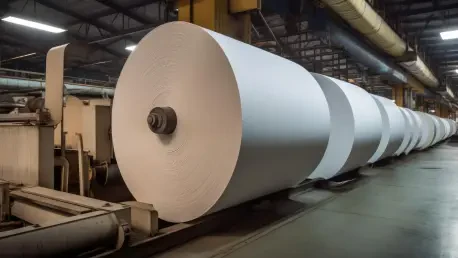The paper and forest products industry in Wisconsin is experiencing a noteworthy transformation, with emerging initiatives aimed at increasing female participation. Initiatives like the Women in Forest Products Scholarship are key to this shift. By providing educational support and facilitating career opportunities, these initiatives empower women to pursue roles traditionally dominated by men. As the nation’s paper sector grapples with low female representation, with women making up only 14% in pulp and paperboard mills, Wisconsin is taking significant steps to change this narrative by nurturing female talent.
Pioneering Scholarships and New Opportunities
Supporting Women Entering the Field
The Women in Forest Products Scholarship offers a valuable pathway for young women interested in the paper and forestry sectors. Carissa Ashman, a dedicated intern at the Thilmany mill, is one of the program’s first beneficiaries. Her decision to pursue environmental engineering at the University of Wisconsin-Green Bay was driven by her family’s history in the industry and her educational experiences at Kaukauna’s Paper Discovery Center. In 2024, Ashman received a $1,000 scholarship funded by a $20,000 donation from the Wisconsin Paper Council and Ahlstrom. This financial aid not only eased her academic burden but also opened doors to critical networking opportunities, culminating in an enriching internship experience at Thilmany.
The scholarship program awarded two additional $1,000 credits to Isabelle Tibbits and Laci Lemke in 2024, with Lemke receiving the new leadership scholarship designed to foster future female leaders in the industry. These scholarships exemplify the sector’s broader movement to enhance women’s roles and influence. Such efforts are crucial, given the current national statistics that highlight the industry’s gender disparity, particularly within specific segments like pulp and paperboard production. Programs like these play a pivotal role in encouraging female participation and paving the way for more inclusive representation.
Building Long-Term Success and Participation
The Wisconsin Paper Council understands that the real strength of the Women in Forest Products Scholarship lies in sustained industry support and a vibrant applicant base. The scholarship’s funding relies on ongoing contributions from industry leaders, highlighting the need for continuous engagement and commitment. With applications for 2026 scholarships opening in February, the program is poised to support both new high school graduates and existing female industry professionals seeking further education or advancement. By offering not just financial aid but also vital career connections, the scholarship ensures a holistic approach to empowering women in this male-dominated sector.
Beyond individual financial benefits, these efforts signify an essential shift towards fostering gender diversity, bringing fresh perspectives into the industry. As women gain greater representation in the sector, the industry benefits from the diverse ideas and leadership they bring. Collaboration between organizations, educational institutions, and industry stakeholders is essential for sustaining and expanding such initiatives. The scholarship’s ongoing success rests on maintaining this momentum and encouraging more women to explore opportunities within Wisconsin’s paper and forestry sectors.
The Broader Gender Inclusivity Movement
Engaging Industry Leaders and Advocates
Efforts to increase female participation in the paper and forest products industry are part of a larger trend toward gender inclusivity. The Women in Forest Products Scholarship is one of many initiatives designed to inspire more women to join traditionally male-centric fields. By collaborating with organizations like the Women’s Fund for the Fox Valley Region, the program ensures continued support and growth. Engagement with established female leaders and advocates is crucial, offering role models and mentors for aspiring professionals.
A concerted push is also evident in other related industries where women’s participation has historically been limited. Efforts to encourage female entrepreneurship, leadership, and innovation are gaining traction. Support systems like mentoring programs and networking events provide women the tools to overcome barriers and contribute meaningfully to their sectors. As more industries recognize the value of diversity, initiatives aimed at reducing gender disparities continue to flourish nationwide.
Transforming Industry Culture and Perceptions
The paper industry’s shift towards greater gender inclusivity not only addresses workforce disparities but also challenges existing stereotypes and cultural perceptions. By actively promoting female involvement from entry-level positions to leadership roles, these efforts seek to transform the industry’s culture. Encouraging diverse thought and experience is crucial, creating an environment that values innovation and adaptability. As industry perceptions evolve, the benefits extend beyond gender equality, fostering a more dynamic and competitive sector overall.
Emerging initiatives build a strong foundation for sustainable change. Leveraging the successes of scholarship recipients and role models within the industry highlights the potential for women to excel and lead. This shift not only aligns with broader societal trends but also positions the paper and forestry sectors to maintain relevance and growth in an increasingly competitive market. By continuing to champion and invest in women’s participation, Wisconsin’s paper industry can cultivate a more equitable and progressive future.
Shaping an Inclusive Industry Future
The paper and forest products industry in Wisconsin is undergoing a significant transformation, characterized by initiatives aimed at boosting female participation. For instance, the Women in Forest Products Scholarship plays a pivotal role in this evolution. By offering educational assistance and enhancing career prospects, these programs empower women to enter fields traditionally dominated by men. This transformation is crucial as the national paper industry struggles with low female representation, with women accounting for a mere 14% in pulp and paperboard mills. Wisconsin is proactively working to change this narrative by cultivating female talent and leadership in the sector. The broader aim is to inspire systemic change, providing women the means to break barriers in a historically male-centric industry. By fostering more inclusive opportunities, Wisconsin hopes to not only enhance diversity but also drive innovation and growth within the paper and forest products landscape, ensuring a vibrant future.









